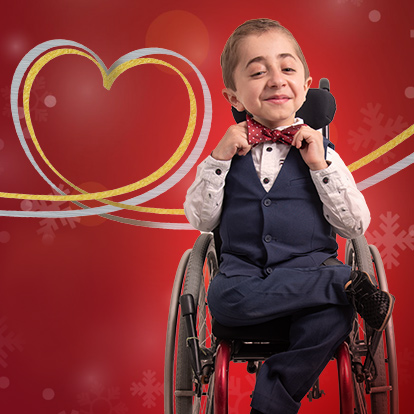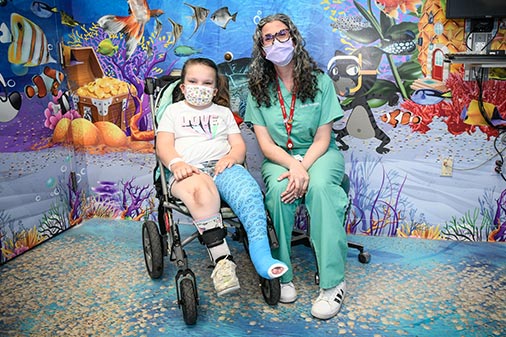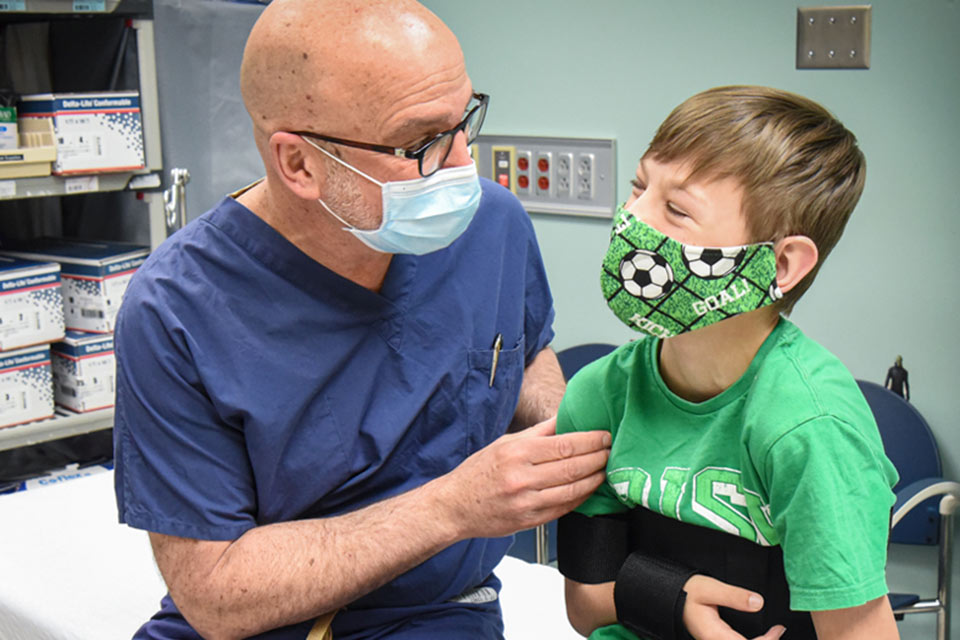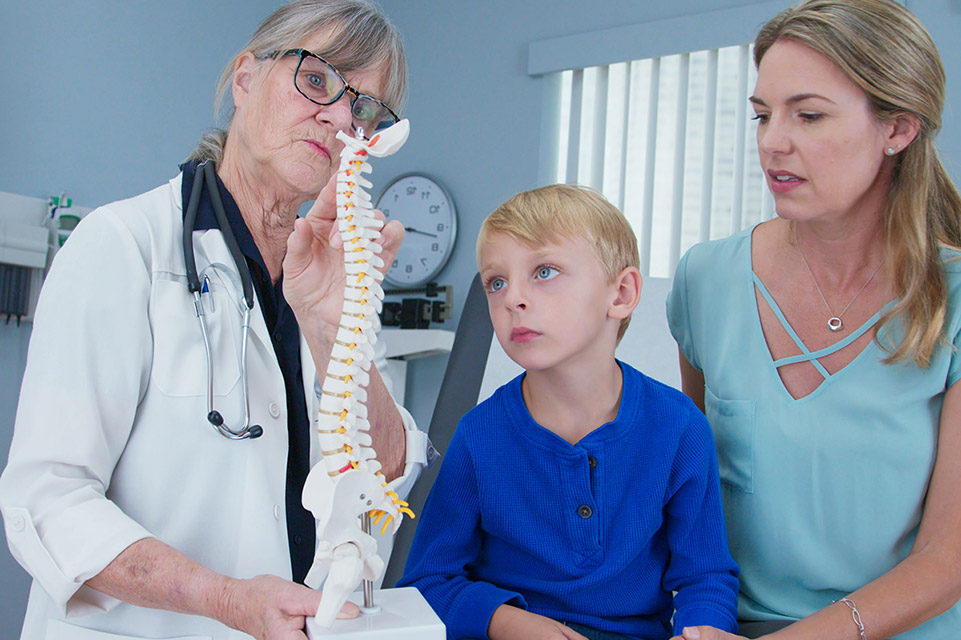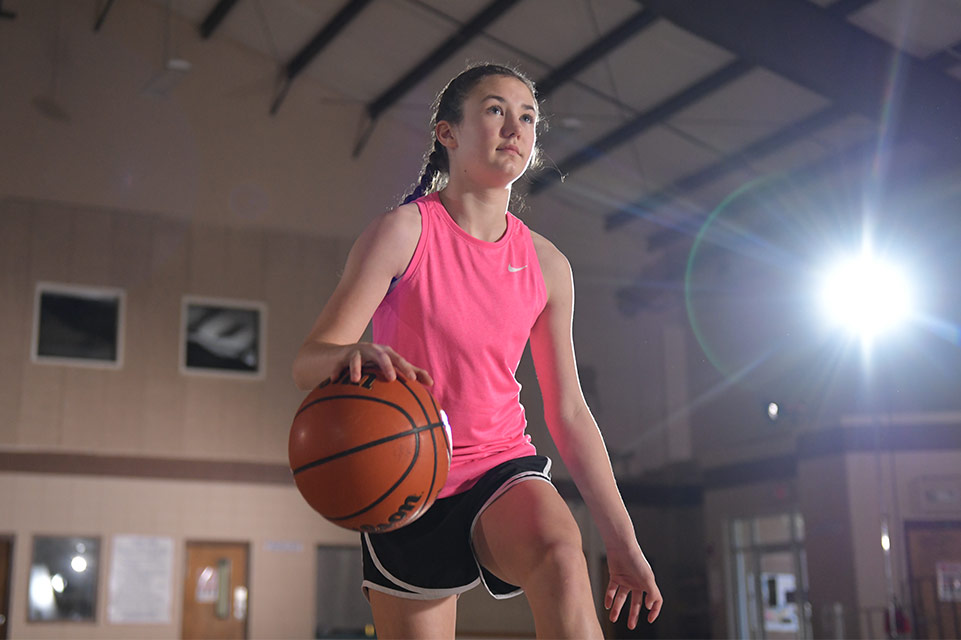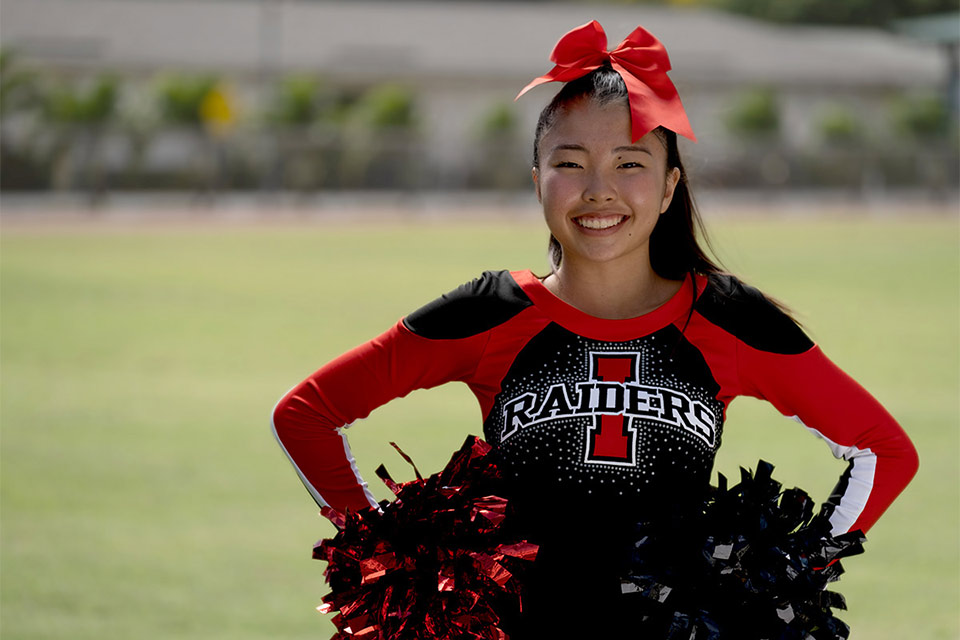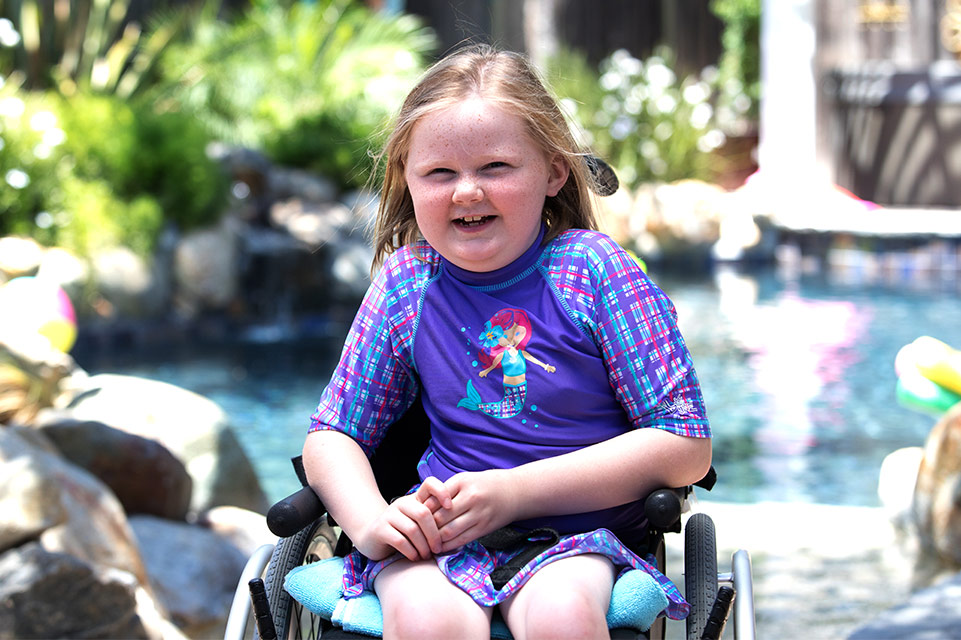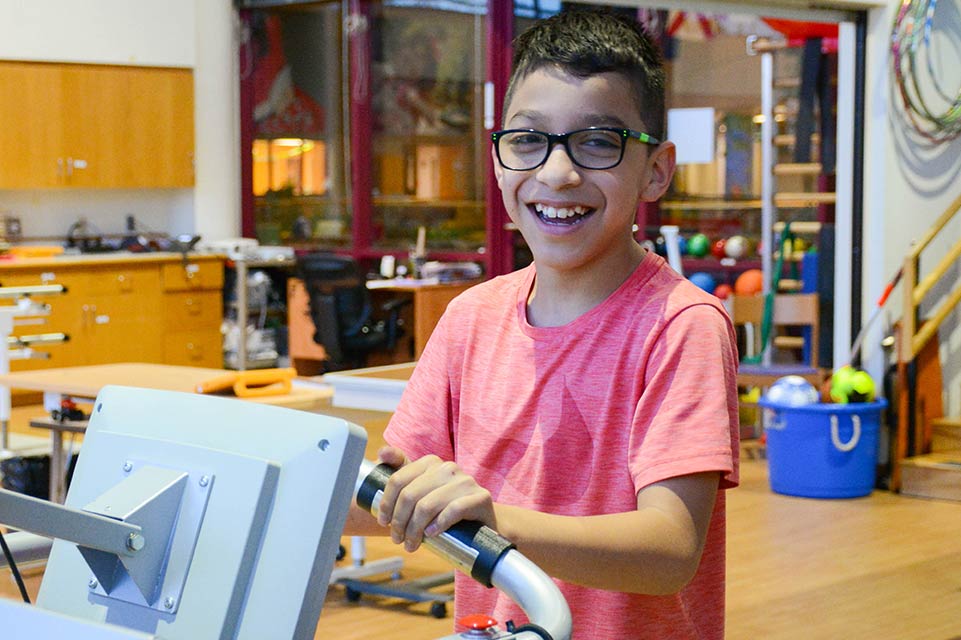[Shriners Children's Philadelphia logo]
Sean Waldron:
One of the things that is probably the most surprising when you walk into this hospital is how happy everybody is. Whether that's the patients themselves, the nurses and the doctors in the clinics, anybody in this building is happy to be here.
Gregory Passanante, DNP, MBA, RN, Northeast Market Administrator:
Looking at how our clinicians provide care, you can see not only the compassion that they have, but the skill that they have. And they really truly are a world-class team.
Amer F. Samdani, M.D., Chief of Surgery, Neurosurgeon:
I'd say the number one factor that differentiates us from other institutions is we have an umbrella of care. We have our surgeons, we have our therapy team, we have our orthotics team, all under one umbrella.
Calli Clark, MSPO, CPO/L, Director of Orthotics and Prosthetics:
At Shriners Children's in the Orthotics and Prosthetics Department, all of our clinicians are pediatric specialists. So we focus exclusively on the needs of children. And the needs of children are not the same as those of adults. You have to approach every kid as a unique individual because their goals, their abilities, their dreams, they're all different.
Jenna, Aurora's Mother:
Shriners wanted to make sure that we can get her fitted and taken care of as the whole child and not just thinking of one spot of her. And I really like that they ask my opinion on matters because it's true, nobody else knows your child like a mother or father would. She didn't even realize it was a hospital because Shriners isn't a hospital, it's a special place for special kids.
Calli Clark:
Knowing how to work with children and their families really sets apart Shriners Children's from other orthotic and prosthetic locations.
[Title Card] MAC Lab & Sports Medicine, Shriners Children's Philadelphia logo
Ross Chafetz, PT, DPT, Ph.D., MPH, Corporate Director of Motion Analysis Centers:
Motion analysis is really cool. So what we do is we take Hollywood technology where they put markers and digitize how people move. But rather than doing an action movie, we take the information that we gather and we put it all together into one single report. From there, we can see what deficits need to be addressed, whether it's surgical, rehabilitation, or maybe it's just medication.
Sean Waldron, M.D., Orthopedic Surgeon, Sports Medicine:
Historically, it's been used to help us take care of kids with neuromuscular conditions such as cerebral palsy. Here at Shriners, we also utilize it for sports medicine. We put them through multiple different sports specific motions such as jumping, cutting, decelerating, accelerating, things that they would normally do while playing sports. And we can make a determination as to whether they're ready to go back.
Ross Chafetz:
Shriners is one of the few places where you can get motion analysis at all. And it really is a technical marvel what we do with the kids, the way we digitize the motion and analyze it as a team. It really is a team effort with some of the best out there.
Sean Waldron:
We have two different physical therapists that come at different times, we also have a nutritionist, and then we also have a physical medicine and rehabilitation non-surgical provider that comes. Probably the ones that I talk to more than any are the physical therapists.
Mallory Meyer, PT, DPT, Senior Physical Therapist:
What I love so much about here is that you have an entire team of people who are talking about your case and problem solving before you even get wheeled in, walked in, however your mode of transportation is getting here. And I don't think that there are many places, if at all, that have a whole team already designated to that preparation. That's a big perk of Shriners here in Philadelphia.
Jessica Zawrotny, MS, OTR/L, Occupational Therapist:
As an occupational therapist at Shriners, it's really cool that I'm able to evaluate what's important to each specific patient that I work with so that that is what we're prioritizing in therapy. So we're working towards reaching the goals that's important to that patient and to their family and what do they want to be more independent with.
Jacqueline, Jaydin's Grandmother:
Every week is better than the week before. And a lot of that is because of I believe they're nurturing. It's also team-oriented, but it translates into family and closeness.
Denise Carr, CRNP, Pediatric Nurse Practitioner:
When you come to Shriners, you have people who genuinely care not only during your hospital stay, but to make sure that you have everything you need when you get home. I feel like we work to not only give you a life-changing experience, but to make sure that your life is changed when you get home.
Kim Curran, RN, BSN, ACM-RN, Nurse Care Manager:
The emotional and psychological wellbeing of patients is super important because if they're not in a good place, they're not going to be successful and able to recover.
Olivia, Patient, Shriners Children's Philadelphia:
Prior to surgery, I was in so much pain. It's hard to live like that when you're in constant pain all the time. And after coming to Shriners, I feel empowered. I feel like I'm myself.
Scott, Olivia's Father:
It just makes you feel so at ease. And as a parent, that is so important. And we just love Shriners.
Christine, Olivia's Mother:
Yes, we do. No contest as far as bringing our daughter here for treatment.
Scott Kozin, M.D., Chief of Staff, Upper Extremity Surgeon:
Parents have a choice, we want them to choose us for what we provide. And it's not just the medical care, but it's the culture.
Kimberly, Ryan's Mother:
We have consistently been met with the warmest, kindest people. They came and not only took care of my son, but also took care of the family members that were there to make sure that the voices were heard, the team approach was present, and that Ryan was ultimately cared for in the best possible way.
Ryan, Patient, Shriners Children's Philadelphia:
It means so much to me. They were able to help me be able to be more comfortable and so I could participate in gym class, outside activities, sports outside of school. And I never thought I would be able to do that. And I'm so happy that Shriners Children helped me through that.
[Title card] Scoliosis and Spine Care, Shriners Children's Philadelphia logo
Amer F. Samdani, M.D., Chief of Surgery, Neurosurgeon:
In our Shrine system, we take care of the full spectrum of spine disorders seen in children.
Josh Pahys, M.D., Pediatric Spine Surgeon:
Everything from the simple to the complex. There's low back strains, pains from sports injuries, infantile scoliosis, cerebral palsy, anything involving the spine from birth to 18 to 21 basically.
Amer F. Samdani :
I'm particularly proud that through our hospital, we've been able to get FDA clearance for a non-fusion related treatment for these children called vertebral body tethering.
Steve Hwang, M.D., Pediatric Spine Surgeon, Neurosurgeon:
Vertebral body tethering is an innovative way to treat scoliosis. We make smaller incisions and put a screw into the vertebral body and put an anchor that tethers a rope that has a little bit of tension on it. And that allows us to apply a force on one side of the spine so you can actually correct the scoliosis, allowing the child's growth to help correct the curve over time as well. That's a treatment option with growth basically in the right patient. So you want to identify the ideal time to perform that surgery if it's necessary to optimize the outcomes in kids.
Josh Pahys:
And everybody that's involved in that really embodies the mission of the Shrine. They all come here every morning and leave every night with the same goal in mind is to take care of the patient and the family. And it's one of the reasons why all of us come here and love working here is the team effort, the family effort that we put into it that I think really sets us apart.
Amer F. Samdani:
The most important thing is we are going to be by your side and we're going to work together to make sure we get the best possible outcome.
Scott Kozin:
So when deciding where to care for your child, I urge you to consider Shriners Children's. It is the best place to have your child care for with complex medical problems and even simple medical problems. You'll appreciate the experience, you'll feel the culture, and we will care for your child in the best way possible.
[Title Card] 215-430-4000, www.shrinerschildrens.org, Shriners Children's Philadelphia logo
